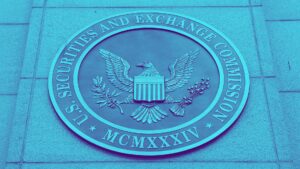
On Nov. 2, the Biden administration formalized Saule Omarova, a professor at Cornell’s Law School, as its nominee to lead the U.S. Office of the Comptroller of the Currency.
Omarova will still need to face confirmation, which will entail a series of hearings and a vote in a tightly locked Senate, none of which have been scheduled yet. While the administration announced its plan for the nomination in September, the formal process has now begun. Omarova’s confirmation has, in the interval, become the epicenter of something of a political storm.
Republicans on the Senate Banking Committee have, in particular, been sounding the alarm as to tendencies they call “anti-bank.” Sen. Pat Toomey, who leads the Senate Banking Committee’s Republicans, has publicly called Omarova a radical candidate.
Omarova, who grew up in Kazakhstan and finished her undergrad at Moscow State University in 1989, shortly before the fall of the Soviet Union, authored a thesis titled “Karl Marx’s Economic Analysis and the Theory of Revolution in The Capital,” which Toomey has called on Omarova to publicize. Elsewhere, Sen. Sherrod Brown, chairman of the Senate Banking Committee, came to Omarova’s defense.
“Before today, I thought, red scare McCarthyism was rightly relegated to the dustbin of history,” said Brown, in a statement. “Any American citizen who fled communist repression — whether it be FDIC Chair Jelena McWilliams or OCC nominee Saule Omarova — should be lauded for their courage and conviction.”
But Toomey is not alone in his concerns. The Wall Street Journal’s editorial board subsequently called Omarova “a banking regulator who hates banks.”
But what is the intersection between that role and crypto? Currently, under Acting Comptroller Michael Hsu, the OCC is the leading regulator of national banks. It took on a starring role within the crypto industry under the tenure of Brian Brooks, who pushed forward policies favorable to crypto’s role within the banking system. Critics accused Brooks of unilaterally undermining bank oversight.
In many ways, it was Brooks who first got the crypto industry’s attention on the OCC. Omarova’s thoughts on crypto will, consequently, be critical, both for the OCC’s independent ability to regulate the authorization of new national banking charters and for its roles in the President’s Working Group and the Financial Stability Oversight Board, which will be determining the fate of stablecoins.
In 2019 research she wrote for Cornell, Omarova sought to demonstrate:
“Why specific fintech applications — cryptocurrencies, distributed ledger technologies, digital crowdfunding, and robo-advising — are poised to amplify the effect of these destabilizing mechanisms, and thus potentially exacerbate the tensions and imbalances in today’s financial markets and the broader economy. It is this potential that renders fintech a public policy challenge of the highest order.”
While that was research published back in 2019 — and therefore conducted well before — it’s a sentiment she re-upped on Twitter in May in response to Goldman Sachs’ new cryptocurrency trading team. In June, she tweeted a line that Senator Elizabeth Warren would later paraphrase, writing: “Crypto was bound to become new ‘shadow banking.’”
In addition to suspicion towards crypto trading, Omarova’s views on a central bank digital currency line up more closely with proposals for FedAccounts that appeared in early versions of last year’s pandemic-era stimulus legislation.
Just weeks ago, Vanderbilt Law Review published work by Omarova called “The People’s Ledger” that pushes a vision of the Federal Reserve as a central public payment platform. It ruminates on the ability of CBDCs to disintermediate commercial banks — a prospect that obviously worries banks as well as those skeptical of the Fed’s ability to manage such a system.
In that article, Omarova points to the rise in cryptocurrencies as well as Reddit-fueled trading of so-called meme stocks as examples of a “broader quest for more equitable and inclusive modes of finance.”
Omarova’s takeaway: “Ultimately, however, it takes a system to beat a system.”
The OCC declined to comment on this article. Staffers for Senator Brown declined to go on the record when reached. Senator Toomey’s team had not returned a request for comment as of publication time.
© 2021 The Block Crypto, Inc. All Rights Reserved. This article is provided for informational purposes only. It is not offered or intended to be used as legal, tax, investment, financial, or other advice.
- 2019
- 9
- advice
- All
- American
- analysis
- announced
- applications
- article
- authorization
- Bank
- Banking
- Banks
- biden
- board
- call
- capital
- CBDCs
- Central Bank
- central bank digital currency
- chairman
- challenge
- commercial
- copyright
- crypto
- Crypto Industry
- crypto trading
- cryptocurrencies
- cryptocurrency
- cryptocurrency trading
- Currency
- Defense
- digital
- digital currency
- Distributed Ledger
- Early
- Economic
- economy
- Editorial
- Face
- fdic
- Federal
- federal reserve
- finance
- financial
- fintech
- First
- Forward
- goldman
- Group
- history
- HTTPS
- Inc.
- industry
- investment
- IT
- Law
- lead
- leading
- Ledger
- Legal
- Legislation
- Line
- Markets
- meme
- Moscow
- National Bank
- order
- Other
- payment
- platform
- policies
- policy
- public
- quest
- research
- response
- review
- School
- Senate
- Senator
- sentiment
- Series
- Shadow
- Stability
- State
- Statement
- stimulus
- Stocks
- Storm
- street
- system
- tax
- Technologies
- time
- Trading
- u.s.
- union
- university
- us
- vision
- Vote
- Wall Street
- warren
- What is
- WHO
- within
- Work
- writing
- year











